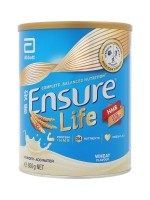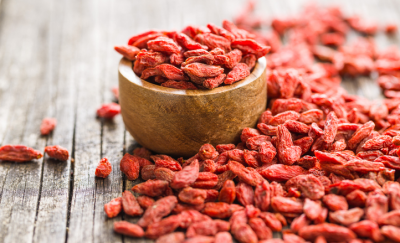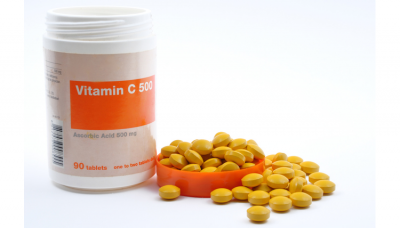Strength gains: Abbott to analyse long-term benefits of supplement containing HMB post six-month supplementation

This is part of the Strengthening Health in ELDerly through nutrition (SHIELD) study involving 811 elderly aged 65 and above and were at medium or high risk of malnutrition in Singapore.
The firm has been running the study alongside Changi General Hospital and SingHealth Polyclinics since 2017.
This is the first time that the nutrition supplement containing HMB, available in the Singapore market as Ensure Life HMB, is trialled on elderly who are at risk of malnutrition in Asia.
One of the purposes of the study, is to assess the impact of the supplementation, along with individualised dietary counselling, in enhancing health outcomes of older adults living in the community who are at risk of malnutrition.

Findings from phase two of the study were recently published in Clinical Nutrition, showing that elderly who took the supplement had a significant increase in weight, BMI, leg and handgrip strength.
Speaking to NutraIngredients-Asia, study chair and lead scientist Dr Agnes Siew Ling Tey said that the following step was to analyse if the supplement could exert long term benefits – even after the subjects have stopped taking it.
The one-year-long study can be divided into two parts.
During the first phase, the participants took either the supplement which contained 262kcal, 10.5g protein, 8.5g fat, 34.2g carbohydrate, 7.75mcg vitamin D3, and 0.74g calcium HMB per serving, or the placebo twice per day for 180 days.
In the next 180 days, participants stopped taking the supplement or the placebo.
During this period, the researchers observed if benefits seen while taking the supplement persisted.
“We collected clinical nutritional and functional outcomes, so we will be looking at all the outcomes at 12 months, just to see what happens to the participants when they stop taking the products for six months,” Dr Tey said.
The same parameters, including weight and BMI, will be analysed.
On the other hand, the study showed that there was no significant difference between survival and hospital (re)admission rate between the placebo and intervention group.
According to the data collected, the reasons for hospital re(admission) amongst the subjects include acute myocardial infarction, heart failure, pneumonia etc, in addition to fractures and falls.
Sarcopenia
The findings published in Clinical Nutrition recently showed that the intervention group gained at least five percent weight as compared to the placebo, and the gain was predominantly in fats.
In the intervention group, 36.2 percent of the subjects had at least 5 percent weight gain, while only 9.4 percent from the placebo group achieved this particular amount of weight gain.
Muscle mass, on the other hand, was maintained but not increased.
The subjects were said to have relatively low body fat at baseline, since the study was specifically designed to study elderly who were at risk of malnutrition.
While the gain in weight was largely due to an increase in body fat, Dr Tey explained that that had positive impact on muscle mass as well.
Sarcopenia patients could also use the product, she added.
“Most people will think of fats as something bad. However, fats are bad only when it is excessive.
“Fat serves an important function, as a reservoir of energy. In times of injury or illness, it helps to protect our muscle mass from breaking down.
“If one has a low-fat mass, what could happen is that if he/she is faced with injuries or illnesses, there will be a reduction in the muscle mass,” Dr Tey said.
In the case of malnourished individuals, fat gain is also important since they typically have low fat mass and low muscle mass at the same time.
As for muscle mass, previous research has shown that exercise has an additional benefit.
“In order to increase muscle mass, one should consider the holistic approach, including good nutrition, high quality protein and also exercise,” Dr Tey said.
Leg strength, hand grip, vitamin D
There was also a significant improvement in the leg and handgrip strength in subjects from the intervention group.
Findings showed that at day 90 of the study, the leg strength of the intervention group was higher than that of the placebo.
While at day 180 of the study, handgrip strength for females in the intervention group was significantly higher as compared to the placebo.
The intervention group also saw an improvement in their vitamin D status, while the opposite was seen in the placebo group.
Two servings of the supplement are said to provide 15.5mcg of vitamin D, which is 78 percent of the recommended dietary allowance for adults above 70 years old.
Improving the level of vitamin D in the body is important as it is associated with reduced risk of falls and fractures in the elderly.
“Oral nutrition supplement containing HMB significantly improves the health outcomes and also muscle strength and nutritional status among older adults at rise of malnutrition and is very important finding.
“It can really impact and benefit, not just the Asian community in Singapore, but also beyond Singapore.
“It can be used to guide and inform public health interventions and healthcare policies in the future,” Dr Tey concluded.
Source: Clinical Nutrition
Impact of specialised oral nutritional supplement on clinical, nutritional, and functional outcomes: A randomised, placebo-controlled trial in community-dwelling older adults at risk of malnutrition
https://doi.org/10.1016/j.clnu.2020.10.015
Authors: Siew Ling Tey, et al



















